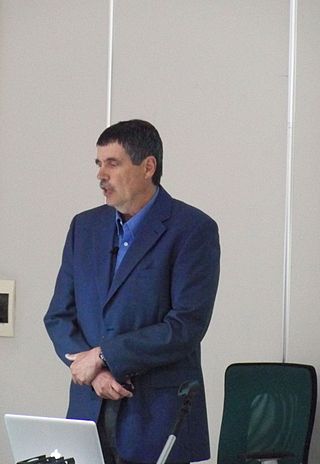Aviad Raz is an Israeli professor of sociology. He is director of the Behavioral Sciences program of the Department of Sociology and Anthropology at Ben-Gurion University of the Negev.
Aviad Raz is an Israeli professor of sociology. He is director of the Behavioral Sciences program of the Department of Sociology and Anthropology at Ben-Gurion University of the Negev.
Aviad Raz earned his B.Sc. and Ph.D. from Tel-Aviv University. He was a Post-doctoral Fellow at Harvard and held fellowships from the Japan Foundation and the Israeli Academy of Sciences. His research focuses on religious/ethnic groups and identities in contemporary Israeli society, especially in the context of health and family studies. He studies the social and bioethical aspects of medical organizations, community genetics and patient support organizations. He also conducts research in the fields of organizational culture and cross-cultural management, and organizational development.
Raz has written seven books and over 43 articles and book chapters on topics in organizational and medical sociology, anthropology, culture, and science.
Aviad Raz was a Visiting AICE Professor at the Dept. of Sociology, University of California in San Diego in 2012-13.

Anthropology is the scientific study of humanity, concerned with human behavior, human biology, cultures, societies, and linguistics, in both the present and past, including past human species. Social anthropology studies patterns of behavior, while cultural anthropology studies cultural meaning, including norms and values. A portmanteau term sociocultural anthropology is commonly used today. Linguistic anthropology studies how language influences social life. Biological or physical anthropology studies the biological development of humans.
Musicology is the scholarly analysis and research-based study of music. Musicology departments traditionally belong to the humanities, although some music research is scientific in focus. Some geographers and anthropologists have an interest in musicology so the social sciences also have an academic interest. A scholar who participates in musical research is a musicologist.
A race is a categorization of humans based on shared physical or social qualities into groups generally viewed as distinct within a given society. The term came into common usage during the 16th century, when it was used to refer to groups of various kinds, including those characterized by close kinship relations. By the 17th century, the term began to refer to physical (phenotypical) traits, and then later to national affiliations. Modern science regards race as a social construct, an identity which is assigned based on rules made by society. While partly based on physical similarities within groups, race does not have an inherent physical or biological meaning. The concept of race is foundational to racism, the belief that humans can be divided based on the superiority of one race over another.
Theodore C. Bestor was a professor of anthropology and Japanese studies at Harvard University. He was the president of the Association for Asian Studies in 2012. In 2018, he resigned as director from the Reischauer Institute following an investigation by Harvard officials that found he committed two counts of sexual misconduct.

Stanley Jeyaraja Tambiah was a social anthropologist and Esther and Sidney Rabb Professor (Emeritus) of Anthropology at Harvard University. He specialised in studies of Thailand, Sri Lanka, and Tamils, as well as the anthropology of religion and politics.

Dan Sperber is a French social and cognitive scientist and philosopher. His most influential work has been in the fields of cognitive anthropology, linguistic pragmatics, psychology of reasoning, and philosophy of the social sciences. He has developed: an approach to cultural evolution known as the epidemiology of representations or cultural attraction theory as part of a naturalistic reconceptualization of the social; relevance theory; the argumentative theory of reasoning. Sperber formerly Directeur de Recherche at the Centre National de la Recherche Scientifique is Professor in the Departments of Cognitive Science and of Philosophy at the Central European University in Budapest.
Richard Allan Shweder is an American cultural anthropologist and a figure in cultural psychology. He is currently Harold H. Swift Distinguished Service Professor of Human Development in the Department of Comparative Human Development at the University of Chicago.
James Alan Shapiro is an American biologist, an expert in bacterial genetics and a professor in the Department of Biochemistry and Molecular Biology at the University of Chicago.
Troy Smith Duster is an American sociologist with research interests in the sociology of science, public policy, race and ethnicity and deviance. He is a Chancellor’s Professor of Sociology at University of California, Berkeley, and professor of sociology and director of the Institute for the History of the Production of Knowledge at New York University.
Tudor Parfitt is a British historian, writer, broadcaster, traveller and adventurer. He specialises in the study of Jewish communities around the world, particularly in Africa, Asia and the Americas. Some of these communities have been recognised only since the late 20th century as having ancient Jewish origins.

Sociology is a social science that focuses on society, human social behavior, patterns of social relationships, social interaction, and aspects of culture associated with everyday life. It uses various methods of empirical investigation and critical analysis to develop a body of knowledge about social order and social change. While some sociologists conduct research that may be applied directly to social policy and welfare, others focus primarily on refining the theoretical understanding of social processes and phenomenological method. Subject matter can range from micro-level analyses of society to macro-level analyses.

Culture is an umbrella term which encompasses the collective social behavior, institutions, and norms found in human societies, which includes the collective knowledge, beliefs, arts, laws, customs, capabilities, and habits of the individuals in these groups. Culture is often originated from or attributed to a specific region or location.

Michèle Lamont is a sociologist and is the Robert I. Goldman Professor of European Studies and a Professor of Sociology and African American Studies at Harvard University. She is a contributor to the study of culture, inequality, racism and anti-racism, the sociology of morality, evaluation and higher education, and the study of cultural and social change. She is the recipient of international prizes, such as the Gutenberg Award and the prestigious Erasmus award, for her "devoted contribution to social science research into the relationship between knowledge, power, and diversity." She has received honorary degrees from five countries. and been elected to several national honorary scientific societies. She served as president of the American Sociological Association from 2016 to 2017.

The three circle model can be applied to different research approaches and models of organizational culture.

Robin Fox is an Anglo-American anthropologist who has written on the topics of incest avoidance, marriage systems, human and primate kinship systems, evolutionary anthropology, sociology and the history of ideas in the social sciences. He founded the department of anthropology at Rutgers University in 1967 and had remained a professor there for the rest of his career, also being a director of research for the H. F. Guggenheim Foundation from 1972 to 1984.

John Charles Avise is an American evolutionary geneticist, conservationist, ecologist and natural historian. He is a Distinguished Professor of Ecology & Evolution, University of California, Irvine, and was previously a Distinguished Professor of Genetics at the University of Georgia.
Elinor Ochs is an American linguistic anthropologist, and Distinguished Professor of Anthropology at University of California, Los Angeles. Ochs has conducted fieldwork in Madagascar, Italy, Samoa and the United States of America on communication and interaction. Together with Bambi Schieffelin, Professor Ochs developed language socialization, a field of inquiry which examines the ways in which individuals become competent members of communities of practice to and through the use of language. Professor Ochs is also known for her contributions to applied linguistics and the theorization of narrative and family discourse.
Kenneth M. Weiss is the Evan Pugh Professor Emeritus of Anthropology and Genetics and Science at the Pennsylvania State University. His research centers on the evolution of complex human traits, particularly disease-related and complex morphological traits. He is a Fellow of the AAAS.

Ruth Schwartz Cowan is an American historian of science, technology and medicine noted for her research on the history of human and medical genetics, as well as on the history of household technologies. She is also the author of a widely used textbook on the social history of American technology.
Byron Joseph Good is an American medical anthropologist primarily studying mental illness. He is currently on the faculty of Harvard University, where he is Professor of Medical Anthropology at Harvard Medical School and Professor of Cultural Anthropology in the Department of Anthropology.